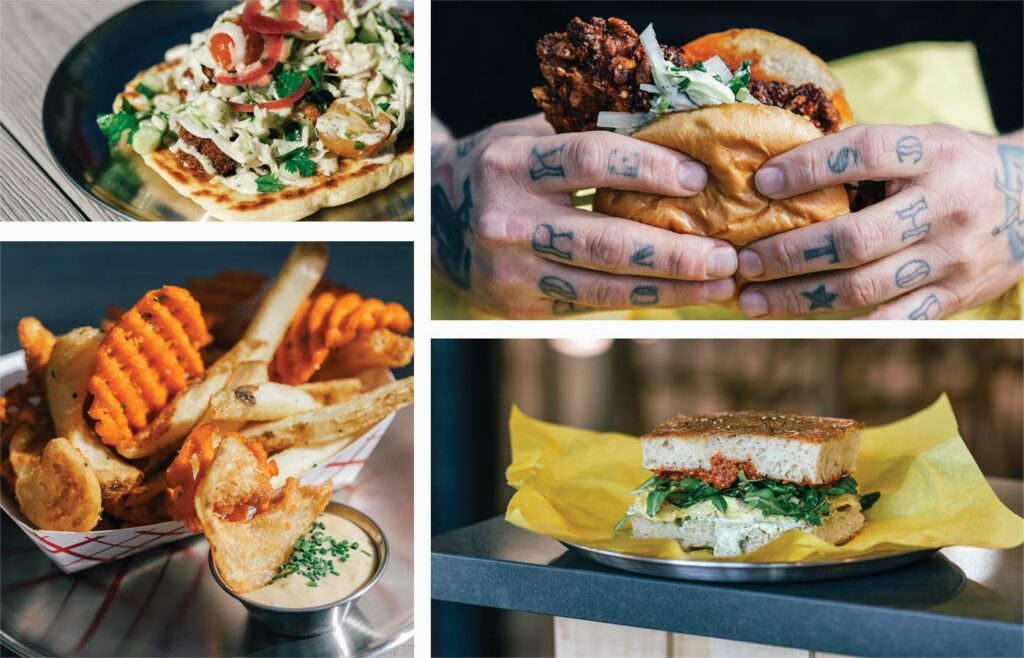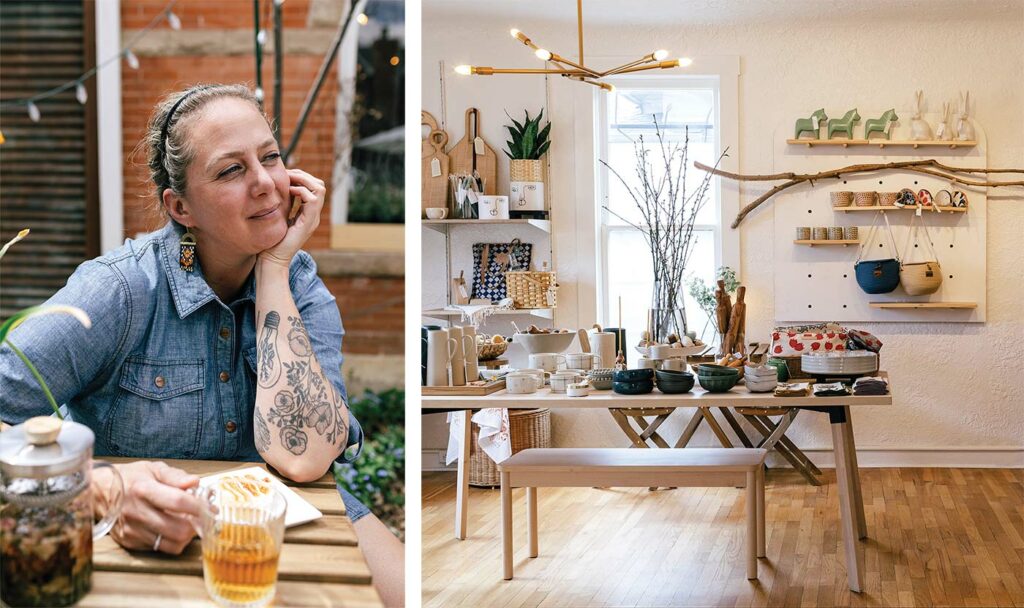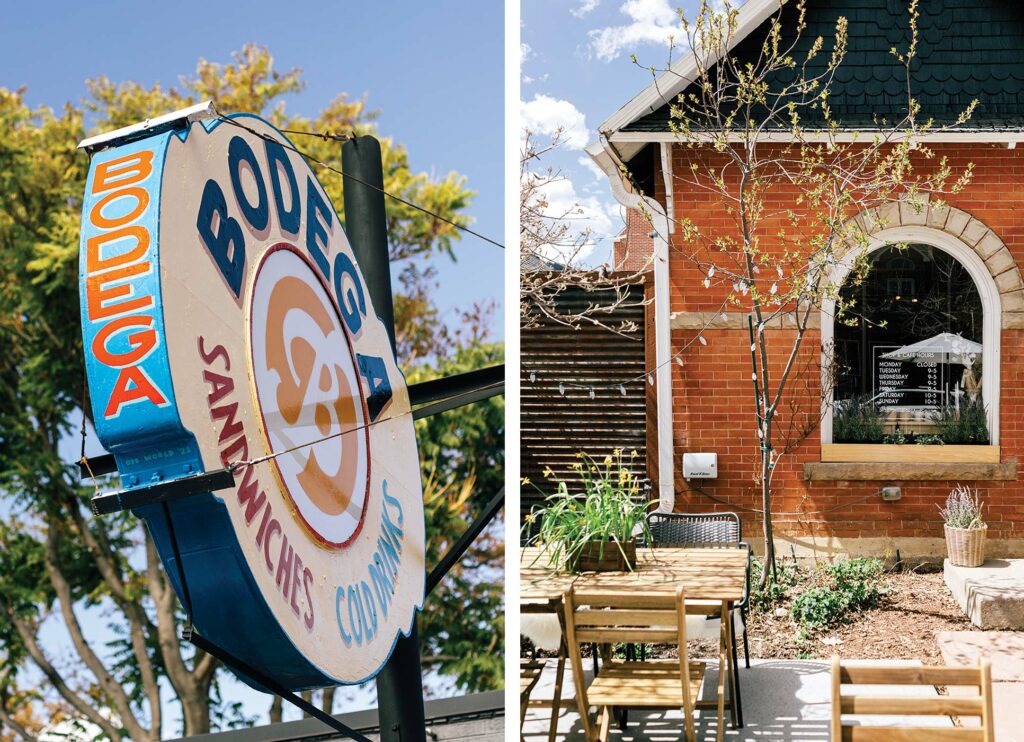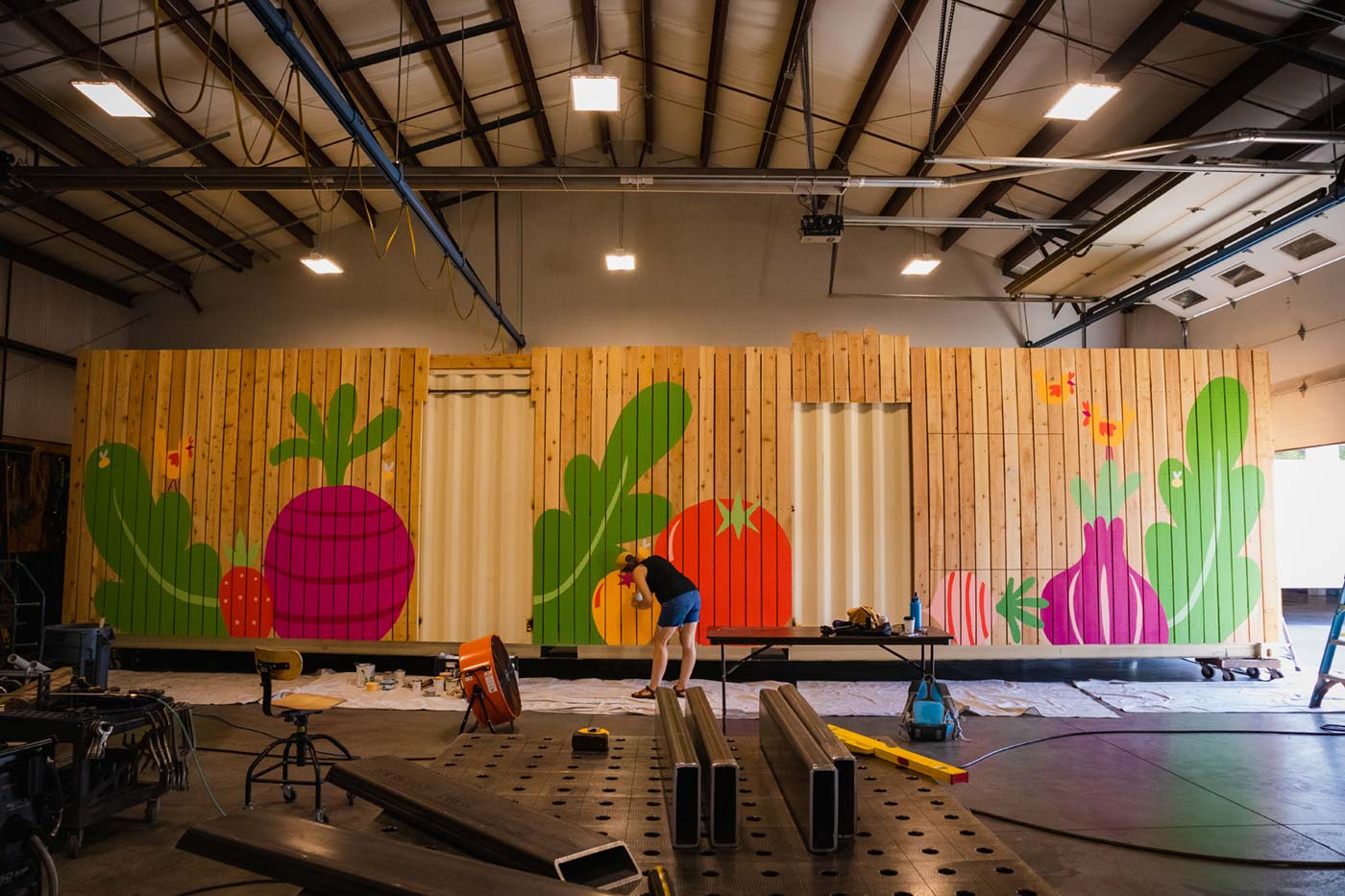Two seasoned chefs chart their own course—and cultivate a sense of community—with the opening of their first independent businesses.
While the pandemic helped expose diners to some of the long-standing issues faced by restaurant workers, few patrons truly understand the complexity of building a career—and a life—in the hospitality industry. The recent FX series “The Bear” has perhaps furthered this awareness with its exploration of the debt, dysfunction and bureaucratic hurdles faced by promising chefs-turned-restaurateurs, yet this made-for-TV drama still highlights only a small slice of the experiences of restaurant workers.
What the show universally gets right, however, is the many years that a career cook or server will dedicate to executing someone else’s vision: the grueling hours, the exacting standards and, often, the sacrifice of one’s personal life in pursuit of professional advancement. Some are never brave enough to carve their own path, and even those who do crave creative autonomy soon discover the transition from chef to business owner is no small feat. To succeed requires more than culinary skill, fair investors or a good location. For a restaurant to last past the latest trend cycle, it needs to have a vision and a soulfulness that keeps customers coming back—something that transcends the dishes on a menu.

For Chef Cliff Blauvelt at Bodega Denver—a buzzy sandwich shop in Sunnyside—starting his own business was only partially about owning the creative direction. He also wanted to transform the culture of the industry:
“My business model is: If I don’t want to do something, I’m not going to ask anyone else to do it. That includes working past 8pm or grinding out 12- to 14-hour shifts. To earn full-time pay, our cooks work four 8- to 10-hour shifts per week. We also distribute tips in such a way that they make more money than they traditionally would ‘on the line.’ That means they have more time to spend with their families or even to stage in other restaurants.”
The recent FX series “The Bear” has perhaps furthered this awareness with its exploration of the debt, dysfunction and bureaucratic hurdles faced by promising chefs-turned-restaurateurs, yet this made-for-TV drama still highlights only a small slice of the experiences of restaurant workers.
More than two decades into his career, Blauvelt’s innovative business model is informed by his firsthand experience with good (and bad) leadership, an unhealthy work-life balance and the way restaurant work can systemically support addiction. His own relationship with alcohol—13 years of on-and-off drinking, plus four years of consistent sobriety—gives him authority to speak not only to individual issues in the industry, but also to how they coexist and compound each other.
“Restaurant jobs are hard, and if it’s super busy, they’re extremely hard. How do you wind down from a seven-hour, 600-cover service? You can’t go home and sleep without a release, so alcohol becomes an easy way out. I’ve had periods of being homeless or living on couches because partying and working were more important than the stability of going home. I once got a DUI leaving after-work drinks with my team, and there are probably millions of people in the industry with that exact same story.”

Having previously served as executive chef at Steuben’s and as culinary director of Tap & Burger Concepts, Blauvelt has had the opportunity to refine his mentorship style and even has pursued training with CHOW (Culinary Hospitality Outreach and Wellness) as a certified peer support specialist. In fact, his focus on making Bodega a recovery-friendly work environment has become a defining factor for his team, with 10 of 17 employees pursuing sobriety.
“We even have one employee who decided to stop drinking after she started at Bodega,” Blauvelt says. “She says she never would have been able to quit if she wasn’t working this job. If we can enrich lives that way, that will make us far richer than any profits.”
In Boulder, chef Andrea Uzarowski shares a similar dedication to redefining the hospitality work environment—informed, in large part, by her experiences as a mother in the industry. At her Scandinavian café and retail shop, Süti & Co., you can often find her son, Oli, helping to clear dishes on weekends, while her fiancé, George, helps to run day-to-day operations. Being able to have her family around is a huge transformation for Uzarowski, who returned to work as an executive chef when each of her now-adult daughters was just 6 weeks old.
“Being a female chef, you feel pressure not to show any weakness. When I was pregnant, I knew my sous chef was looking to take my job as soon as I went on maternity leave. So I worked the line right up to going into labor and sacrificed too much time away from my children. I paid my dues, and owning my own business is about getting to create the work-life balance that is meaningful to me… even if I still work 80-hour weeks.”

Family and childhood nostalgia also play a significant role in Uzarowski’s creative process, as she draws from the flavors and traditions of her childhood in Denmark—whether gardening with her mother or baking with her grandmother—to inform her signature baked goods and the menus at her Supper Club dinner series.
“I left home at 17 and never moved back. Some other Scandinavians come in and say ‘This is nothing like at home,’ but the menu is an interpretation of my memories, presented through a lens that will make American customers feel welcome, while also discovering something new.”
Being able to express her creativity in several different ways has also been a liberating experience for Uzarowski, who trained in European Michelin-starred kitchens and has worked in nearly every kind of food service (restaurant groups, catering, corporate dining rooms), but spent most of her career feeling restless or failing to “fall in line.” She not only personally handles the menu development and production at Süti & Co., she also curates the kitchen and home goods sold at the café, drawing from her personal values of style and durability:
“Being a female chef, you feel pressure not to show any weakness. When I was pregnant, I knew my sous chef was looking to take my job as soon as I went on maternity leave. So I worked the line right up to going into labor and sacrificed too much time away from my children.” – Andrea Uzarowski
“Growing up, my family was comfortable, but we didn’t have a lot. There was always a sense of making something out of nothing—antique things, vintage things. I fell in love with timelessness and craftsmanship, but also craved new things that felt relevant. When I look at our shop, it’s a blend of those two things—a clean, modern aesthetic, but also a quality that looks even better as you use things over time.”
This creative ownership is what many cooks strive to achieve in their lifetimes, and Blauvelt is no exception. Prior to opening Bodega, he briefly served as an executive chef at a restaurant in Aruba, where he was able to completely own the menu development for the very first time.
“That experience taught me that I can bring a fine-dining approach to prep for any kind of food—including a sandwich. So the skill level we operate with at Bodega is very technique-driven, made with quality ingredients. We get to be chef-y and playful, taking the familiar and putting our twist on it. It’s a way of bringing our full selves to work.”

One other reason both Blauvelt and Uzarowski are able to represent their visions so successfully is their choice to operate without outside investors. For Blauvelt, that choice was essential to being able to control the way money is reinvested in the business—and his team. Fifty percent of all healthcare costs are covered for Bodega employees—a choice that may have been impossible if the profits were split among multiple partners. For Uzarowski, financial ownership means she can indulge in taking risks or pursuing passion projects—like hosting a prix fixe, no-menu-substitutions supper club.
“I feel more empowered than any restaurateur,” she says. “People are blindly trusting me—signing up for a menu with no idea what they will be given. And so far, with every pop-up dinner, the plates come back completely clean. Something is resonating.”
To an outside observer, what seems to be resonating is the sheer humanity of both of these businesses—the authentic representation of each owner and their personal values. It takes a village to launch and sustain any food concept, and both Blauvelt and Uzarowski have prioritized treating their teams with a level of respect and support that translates to the customer experience. They’ve set the bar high not just on their menus, but also in creating an environment that they personally want to spend time in, and that deeper sense of hospitality makes all the difference.
Lorem ipsum dolor sit amet, consectetur adipiscing elit. Ut elit tellus, luctus nec ullamcorper mattis, pulvinar dapibus leo.




